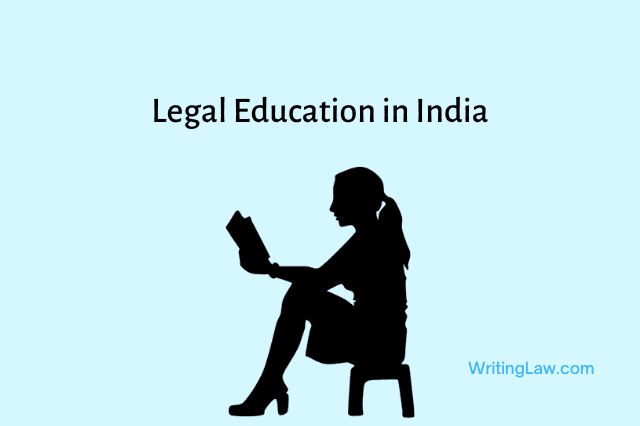
The rule of law is essential for the rejuvenation of society. In the middle of the twentieth century, India’s Constitution was drafted. On November 26th, 1949, it was approved and signed as the supreme legislation.
The Indian Constitution is republican, secular, and democratic. It guarantees all its citizens justice, liberty, equality, and fraternity, but most Indians are unaware of its basic provisions.
In today’s educational system, it is not mandatory to teach its provisions with clear interpretation at the school level. Legal education in India needs drastic reforms. Students must receive proper legal education to learn about their rights and responsibilities.
In this law article, you will read about the scope and importance of legal education in India. The article will also discuss the role of the examination system, the Bar Council of India (BCI), and the measures for improving legal education in India.
Scope of Legal Education
Legal education should be carefully addressed in terms of its scope and approach. Teachers, lawyers, and famous jurists can all play a significant part in policymaking. The study of law should be related to other social sciences so that a better version may be produced and citizens can be protected from criminal behaviour.
The fundamental focus of legal education is legal language. As a result, students should have access to a decent legal dictionary, journals, and general reference materials at a moderate cost. The time has come for scientific knowledge of the law. It is the most efficient means of obtaining a favourable legal result.
Importance of Legal Education
In today’s dynamic and innovative culture, academic education in India is becoming obsolete. Professional education, whether through empirical (factual) or practical methods, has become essential. While having a debate over the educational aspect of legal knowledge, the National Knowledge Commission sees legal education as an important component of professional education. The goal of legal education is to provide a justice-oriented education that will help people realise the principles established in India’s Constitution.
Academics, legislators, judges, policymakers, public officials, civil society activists, and private sector legal counsel must all aim to prepare legal professionals who will play decisive leadership roles while maintaining the highest standards of professional ethics and a spirit of public service.
Role of Examination System
The Indian Constitution is a federal one. In India, the judiciary is independent and unbiased. It safeguards our fundamental rights and educates us on the Directive Principles. As a result, in order to comprehend the significance of a legal system, the examination system must be renovated. Furthermore, the examination process is defective. The Bar Council of India’s resolution is mostly ignored. The majority of lawyers are unemployed.
Role of the Bar Council of India
It is also necessary to improve the teaching method. The important instances must be used to illustrate the lectures. Practical legal knowledge and its application in everyday life must be effectively explained.
Students of law should be provided with all means and environments for group discussions, seminars, court visits, Moot Court, tutorials, case drafting, and practical training. A legal student is required to attend court and watch important rulings. Their education must also cover legal reporting. The Bar Council of India should provide financial help to less fortunate students.
Measures for Improvement
Fundamental rights are the essential values that a good citizen must uphold. Legal information can create a positive attitude in the minds of the readers. India’s moral character can remain unblemished if each individual understands the value of legal education.
Law teachers have an important role in fostering legal knowledge and promoting a sense of brotherhood and nationalism. Legal education can remove social and religious tensions and provide national solidarity.
The Bar Council must also take adequate measures to improve legal education in India. Law cannot be taught in isolation without taking into syllabus its relationship with other social science.
Legal education can both promote social transformation and serve as a tool for social control. It is based on thoughts governed by evolving progressive ideas and a legitimate information base. It can be used to solve a societal problem pragmatically (in a sensible and realistic way that is based on practical rather than theoretical considerations).
Read Next:
1. How to Start Studying Law – For New, Existing and Old Students
2. 9 Best Novels for Law Students and Advocates
- What Is the Burden of Proof Under the PMLA? - 18th April 2024
- Ranjit D Udeshi vs State of Maharashtra – Case Explained - 11th April 2024
- What Is Proceeds of Crime Under PMLA (With Case Laws) - 7th April 2024







